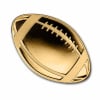Welcome to the Hardcore Husky Forums. Folks who are well-known in Cyberland and not that dumb.
THE LATEST ON LAKE

RaceBannon
Member, Moderator, Swaye's Wigwam Posts: 116,708 
Anyone heard anything?
Comments
-
Open main menu
Search Wikipedia
EditWatch this pageRead in another language
Lake
For other uses, see Lake (disambiguation).
An area of lakes in Germany at Mecklenburg Lakeland
A lake is an area of variable size filled with water, localized in a basin, that is surrounded by land, apart from any river or other outlet that serves to feed or drain the lake.[1] Lakes lie on land and are not part of the ocean, and therefore are distinct from lagoons, and are also larger and deeper than ponds, though there are no official or scientific definitions.[2] Lakes can be contrasted with rivers or streams, which are usually flowing. Most lakes are fed and drained by rivers and streams.
Natural lakes are generally found in mountainous areas, rift zones, and areas with ongoing glaciation. Other lakes are found in endorheic basins or along the courses of mature rivers. In some parts of the world there are many lakes because of chaotic drainage patterns left over from the last Ice Age. All lakes are temporary over geologic time scales, as they will slowly fill in with sediments or spill out of the basin containing them.
Many lakes are artificial and are constructed for industrial or agricultural use, for hydro-electric power generation or domestic water supply, or for aesthetic or recreational purposes or even for other activities .
Etymology, meaning, and usage of "lake"
Distribution of lakes
Origin of natural lakes
Types of lakes
Characteristics
Limnology
How lakes disappear
Extraterrestrial lakes
Notable lakes on Earth
See also
References
External links
Last edited 8 days ago by Velella
Wikipedia®
Content is available under CC BY-SA 3.0 unless otherwise noted.
Terms of UsePrivacyDesktop -
Nothing changed with me. Just got call from FRANNY 5 minutes ago and told me I was to show up in Maltby. If dad has stuff to do have him leave with you. I'll have Anna take me and Dad can leave with you. I would prefer u and dad leave together. I'll ask Anna. Shouldn't be a problem. If she can't I'll let you know
-
Wonder this time where he's gone
Wonder if he's gone to stay
Ain't no sunshine when he's gone
And this house just ain't no home
Anytime he goes away -
FU guys that was funnyjamtoft said:Wonder this time where he's gone
Wonder if he's gone to stay
Ain't no sunshine when he's gone
And this house just ain't no home
Anytime he goes away -
-
-
what is reed strong hearing?
-
-









